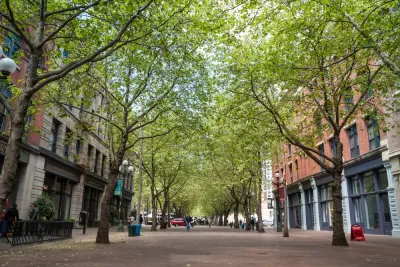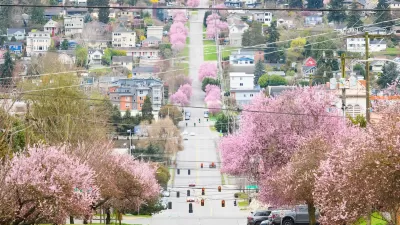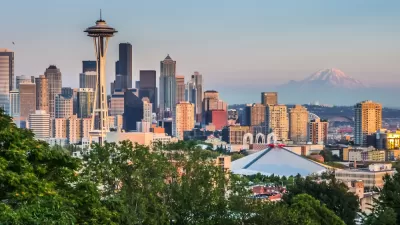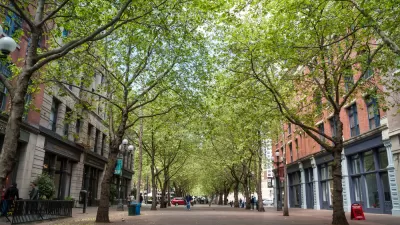Parts of the city desperately need more trees, but some residents worry about the long-term effects of tree planting in neighborhoods.

Carolyn Bick reports that efforts to improve Seattle’s tree protections and increase tree canopy coverage have been met with resistance from residents in South Seattle neighborhoods.
These lower-income communities of color have fewer trees than other parts of Seattle, and the areas have some of the worst health outcomes in the city. Research has shown a clear relationship between green space and public health, and South Seattle residents say they want more trees. But they fear the gentrification that could follow from such improvements.
Residents also have been critical of advocacy and outreach efforts. "For too long, they say, white-led environmental organizations have come into South Seattle communities of color with the assumption that they know better than the residents themselves what people there need,” says Bick.
Community advocates say that the city and advocacy groups need to better understand the perspectives and situations of local residents. "Ultimately, [Andrew] Schiffer said, gentrification is happening; and while greening the area may be making it more attractive for wealthy people and developers, the best way to ensure the existing community isn’t displaced is by making sure the community is involved," notes Bick.
FULL STORY: South Seattle residents want greener neighborhoods — without more gentrification

Maui's Vacation Rental Debate Turns Ugly
Verbal attacks, misinformation campaigns and fistfights plague a high-stakes debate to convert thousands of vacation rentals into long-term housing.

Planetizen Federal Action Tracker
A weekly monitor of how Trump’s orders and actions are impacting planners and planning in America.

In Urban Planning, AI Prompting Could be the New Design Thinking
Creativity has long been key to great urban design. What if we see AI as our new creative partner?

King County Supportive Housing Program Offers Hope for Unhoused Residents
The county is taking a ‘Housing First’ approach that prioritizes getting people into housing, then offering wraparound supportive services.

Researchers Use AI to Get Clearer Picture of US Housing
Analysts are using artificial intelligence to supercharge their research by allowing them to comb through data faster. Though these AI tools can be error prone, they save time and housing researchers are optimistic about the future.

Making Shared Micromobility More Inclusive
Cities and shared mobility system operators can do more to include people with disabilities in planning and operations, per a new report.
Urban Design for Planners 1: Software Tools
This six-course series explores essential urban design concepts using open source software and equips planners with the tools they need to participate fully in the urban design process.
Planning for Universal Design
Learn the tools for implementing Universal Design in planning regulations.
planning NEXT
Appalachian Highlands Housing Partners
Mpact (founded as Rail~Volution)
City of Camden Redevelopment Agency
City of Astoria
City of Portland
City of Laramie





























